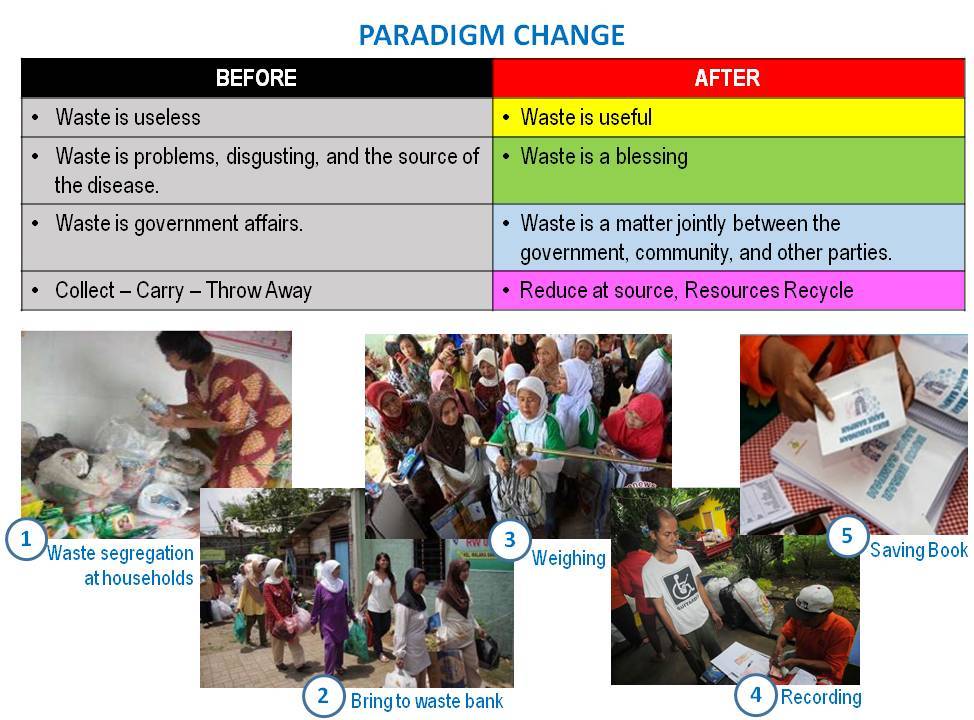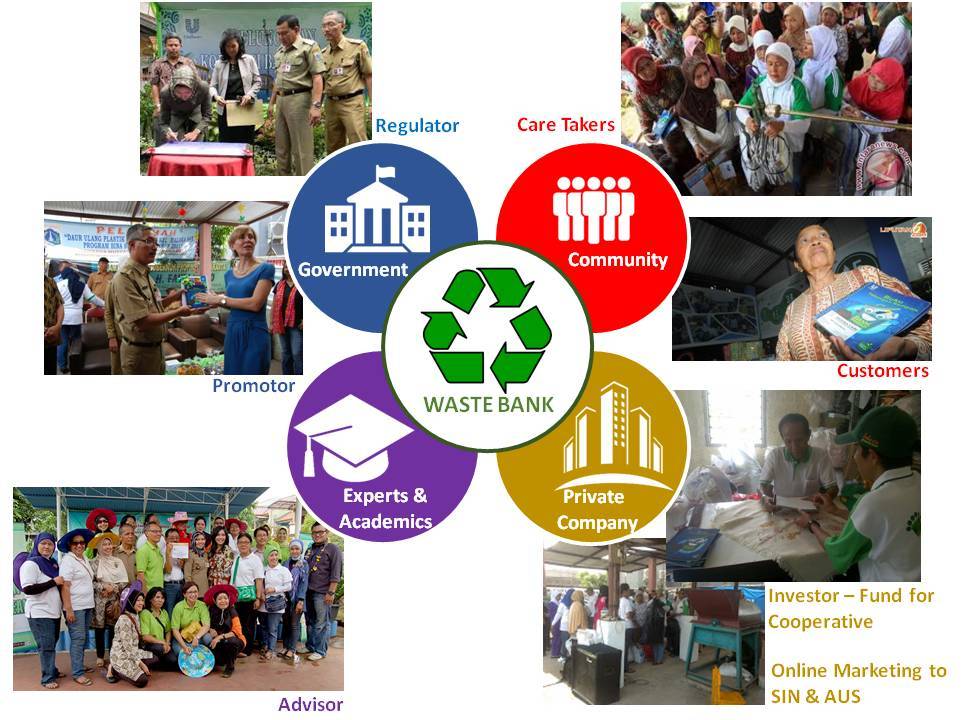WASTE BANK PROGRAM IN MALAKA SARI, JAKARTA (A Best Practice of Community-Based Waste Management)
In 2014, the three largest waste compositions in Jakarta consist of organic waste (55.37%), paper (20.57%), and plastics (13.25%). The total waste as already mentioned above, more than 50% comes from households. On the other hand, there is an interesting thing happening at Malaka Sari Village in East Jakarta. Since 2009, residents of Malaka Sari Village do community-based waste management by applying the principles of 3R (Reduce, Reuse, and Recycle). This waste management program called waste bank.

Waste bank actually is a social engineering so that people manage waste 3R principles in the management of community-based waste. As a social movement, the waste bank is built upon public awareness of the importance of waste. The main goal of waste bank is reducing solid waste at community level & increasing effectiveness of integrated waste.
In conducting waste management, the caretakers of waste bank in Malaka Sari Village using some simple equipment, such as carts, plastic, compost machines, a basin, and sewing machines. The equipment used to haul waste, compact trash, produce compost, and make some handicraft products.

Citizen gets money from the sale of waste. The price of the waste varies; for instance, cardboard sold for USD 0.10-0.15 per box, soft drink cans sold for USD 0.44 per can, and so on. Then, this waste is processed by the caretakers. The organic waste is processed into fertilizer, while other waste is recycled into craft items such as handbags, wallets, tissue boxes, umbrellas, and more. All processed products are sold back. In 2012, business profits reached $ 698.21. Through this method, all parties gain mutual benefits. Customers are increasingly eager to collect as much waste. The more waste collected, the more money earned.


Waste bank actually is a social engineering so that people manage waste 3R principles in the management of community-based waste. As a social movement, the waste bank is built upon public awareness of the importance of waste. The main goal of waste bank is reducing solid waste at community level & increasing effectiveness of integrated waste.
In conducting waste management, the caretakers of waste bank in Malaka Sari Village using some simple equipment, such as carts, plastic, compost machines, a basin, and sewing machines. The equipment used to haul waste, compact trash, produce compost, and make some handicraft products.

Citizen gets money from the sale of waste. The price of the waste varies; for instance, cardboard sold for USD 0.10-0.15 per box, soft drink cans sold for USD 0.44 per can, and so on. Then, this waste is processed by the caretakers. The organic waste is processed into fertilizer, while other waste is recycled into craft items such as handbags, wallets, tissue boxes, umbrellas, and more. All processed products are sold back. In 2012, business profits reached $ 698.21. Through this method, all parties gain mutual benefits. Customers are increasingly eager to collect as much waste. The more waste collected, the more money earned.
